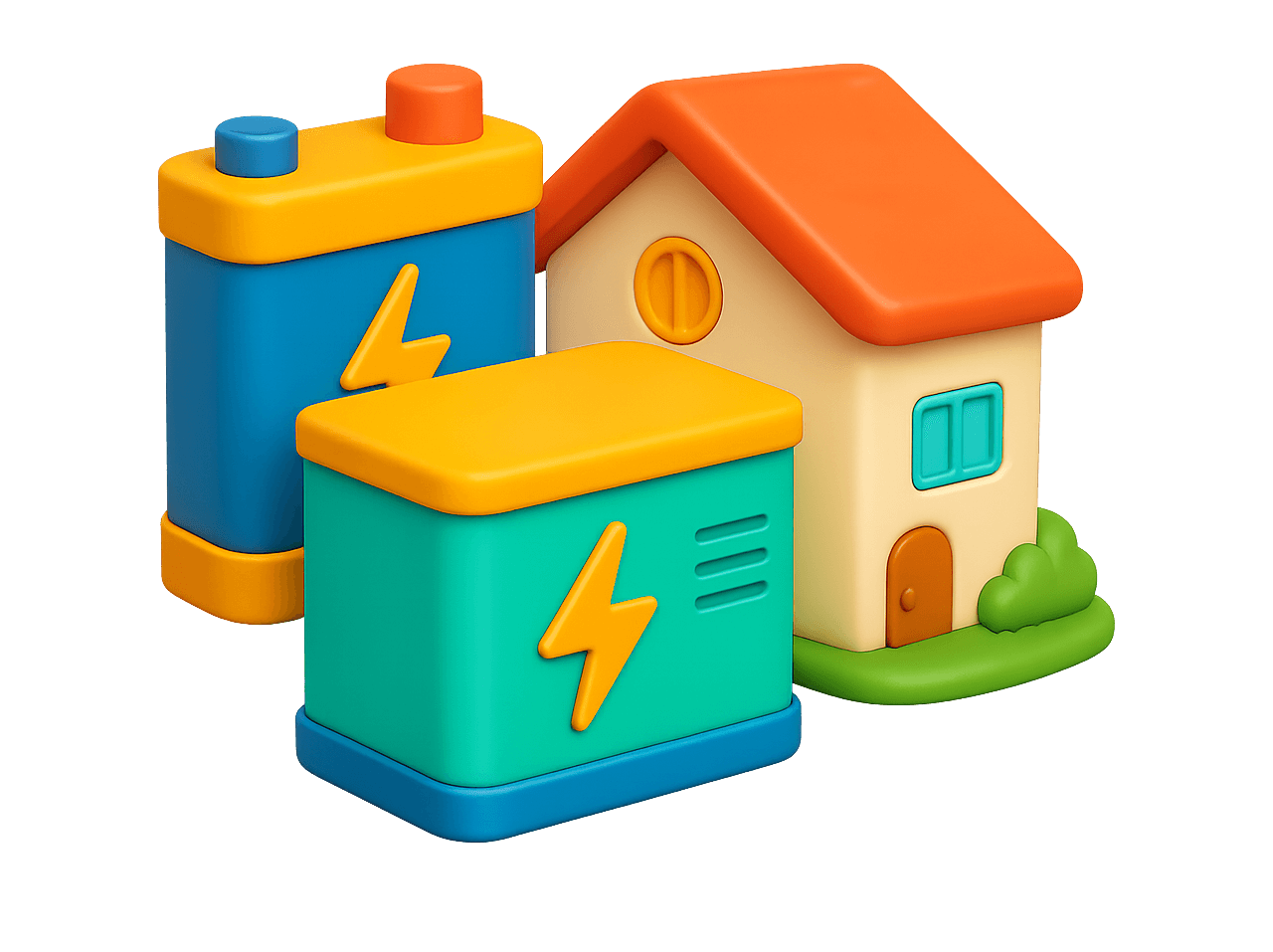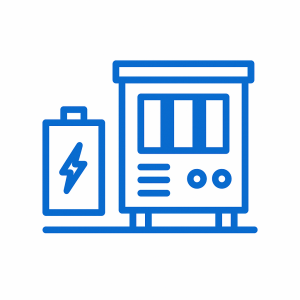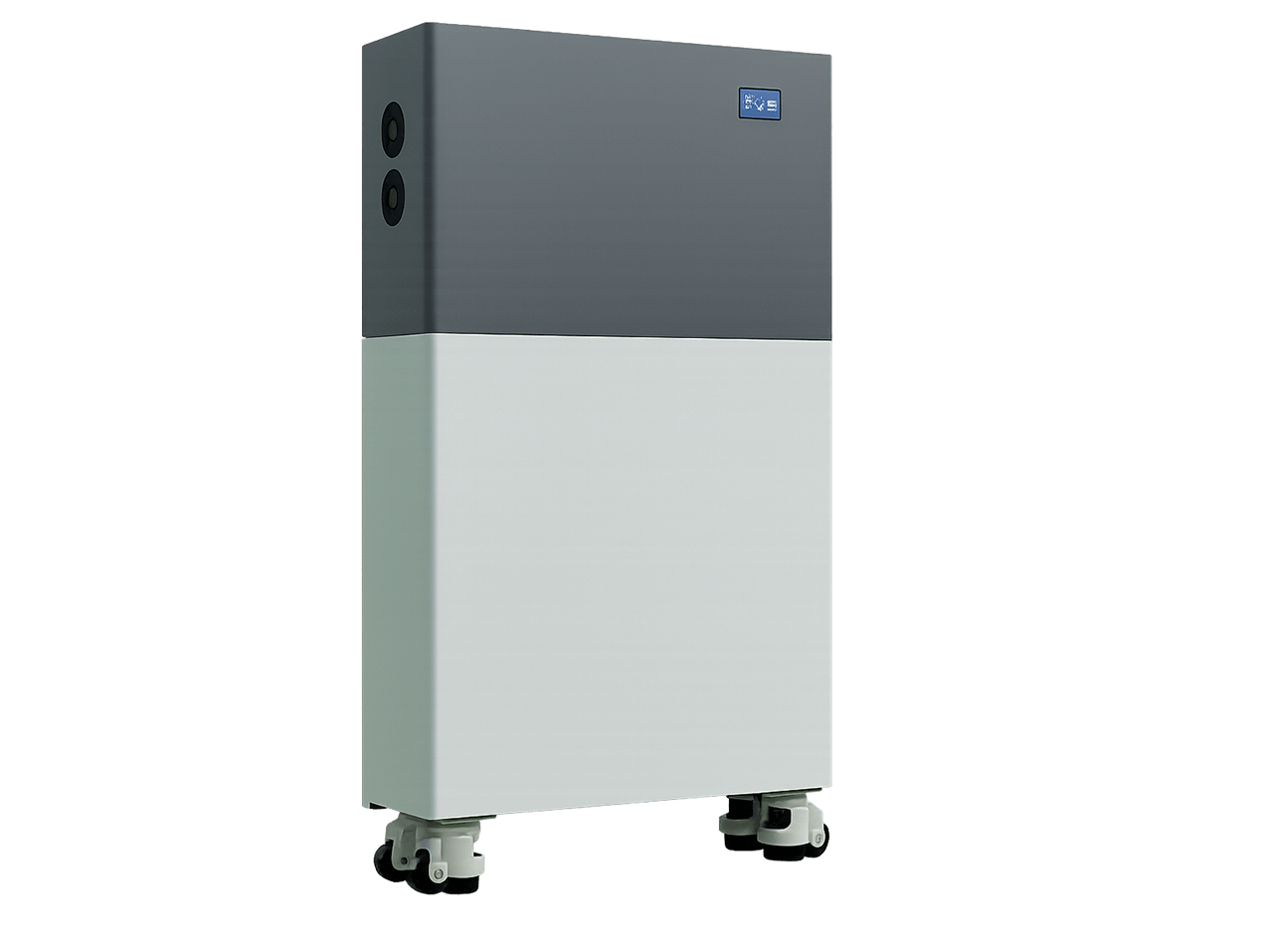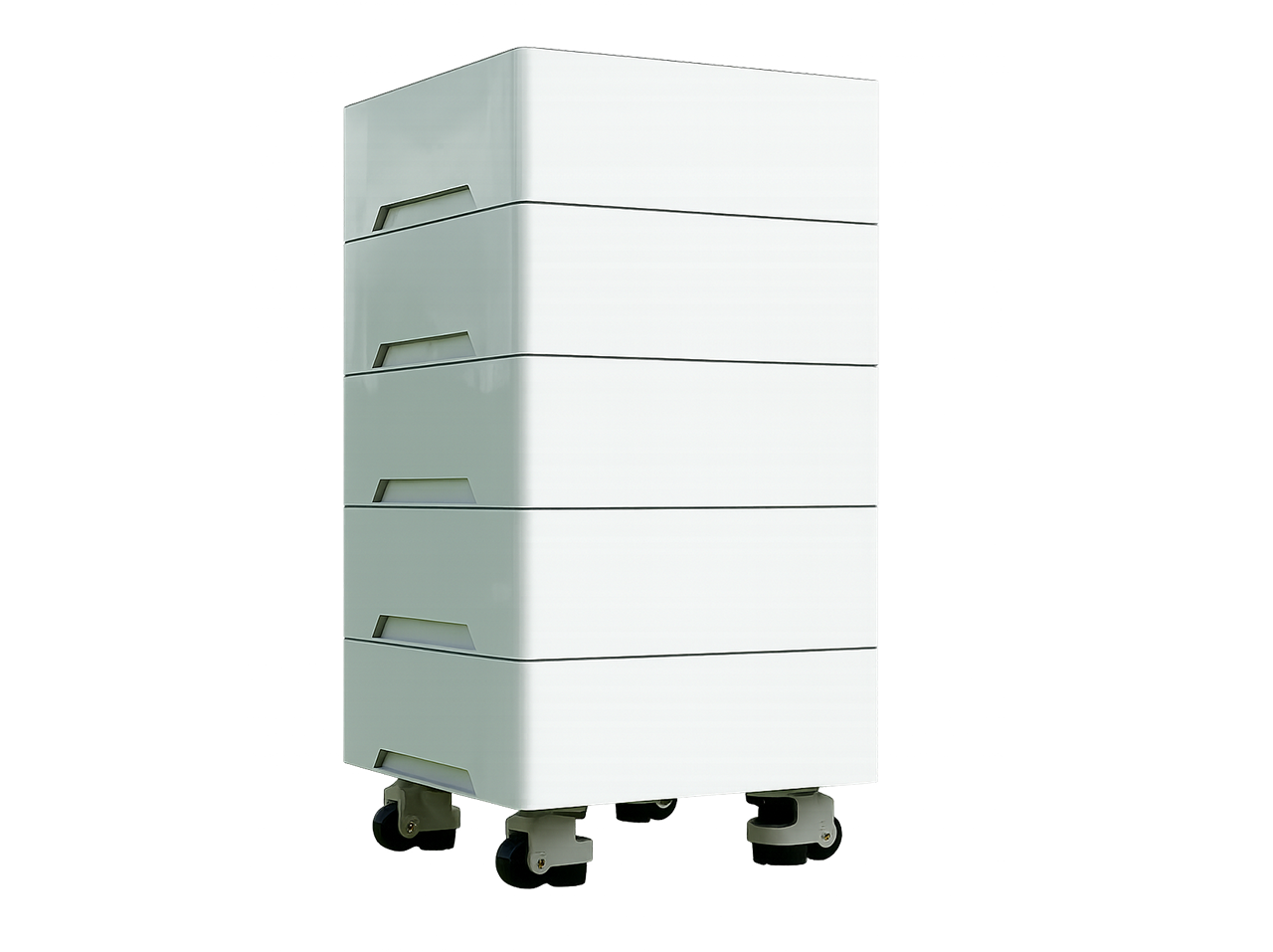Residential battery energy storage
Discover residential battery storage systems for homes. Store solar energy, reduce bills, and ensure reliable backup power.

Worldwide shipping
We ship our equipment worldwide.
Contact us and we will solve any issue concerning logistics.
Residential battery energy storage systems are transforming how households consume and manage electricity. As solar rooftop installations grow rapidly across Europe, more families are investing in home BESS to capture surplus daytime generation, use it in the evening, and stay protected during grid outages.
What Is Residential Battery Energy Storage?
A residential battery system stores electricity, typically generated by rooftop solar panels, for later use. It can also charge from the grid during off-peak hours and discharge when electricity prices are higher. This ensures cost savings, independence, and energy security for homeowners.
Why Homeowners Choose BESS
- Solar optimization: Store surplus PV generation and use it at night.
- Energy independence: Reduce reliance on fluctuating utility tariffs.
- Backup power: Ensure critical loads like lighting, refrigeration, and heating remain active during outages.
- Cost reduction: Shift consumption to off-peak hours and avoid expensive peak-time rates.
- Smart integration: Combine with EV chargers, heat pumps, and home energy management systems.
Technology Highlights
- Lithium iron phosphate (LFP) batteries with 6000+ cycles for safety and durability.
- Capacity range: From 5 kWh for small households to 20+ kWh modular systems for larger homes.
- Hybrid inverters: Combine solar generation, battery energy storage, and grid interaction.
- Smart apps: Real-time monitoring, AI-based forecasting, and remote control.
- CE/IEC certification: Full compliance with European standards.
Economic Benefits
Residential battery storage reduces energy bills by maximizing solar self-consumption and participating in time-of-use (TOU) optimization. Many households achieve payback periods of 6–10 years, with additional savings if government subsidies or feed-in tariffs are available.
Market Context
By 2030, millions of European homes are expected to adopt residential BESS as part of the EU carbon neutrality roadmap. With electricity prices becoming more volatile and EV adoption rising, home storage is no longer optional but essential for modern households.
Why Source From China to Europe
China leads global production of residential battery packs, hybrid inverters, and energy management systems. Direct supply ensures:
- Affordable costs without compromising safety.
- Customizable capacity for small apartments or large villas.
- CE/IEC-compliant hardware ready for the EU market.
- Flexible delivery terms (EXW, CIF, DDP) for rapid deployment.
In short, residential battery energy storage empowers households to achieve independence, resilience, and long-term savings while contributing to Europe’s renewable energy transition.
FAQ — Residential Battery Energy Storage
1) What is a residential battery storage system?
A device that stores solar or grid electricity for later use, ensuring independence and backup power.
2) How much capacity does a home battery need?
Small homes may need 5–10 kWh, while larger houses typically require 10–20+ kWh depending on load and EV charging.
3) Which battery chemistry is safest for homes?
Lithium iron phosphate (LFP) is preferred for residential systems due to its safety, long life, and thermal stability.
4) How long does a home battery last?
Typically 10–15 years or 6000+ cycles with proper maintenance and optimal use.
5) Can it work without solar panels?
Yes, batteries can charge from the grid at off-peak rates and discharge during expensive hours or outages.
6) How do batteries reduce electricity bills?
By increasing solar self-consumption and shifting energy use to cheaper off-peak times.
7) Are residential BESS safe?
Yes, modern systems include advanced BMS, fire protection, and CE/IEC-certified safety mechanisms.
8) Can batteries power the entire home?
Yes, depending on capacity. Systems can be configured to cover critical loads or the full household.
9) What is the payback period?
On average 6–10 years, faster if subsidies or high electricity prices apply.
10) How can I buy CE-certified residential storage in Europe?
Through direct supply from Chinese manufacturers with EU compliance documentation and local installation partners.


